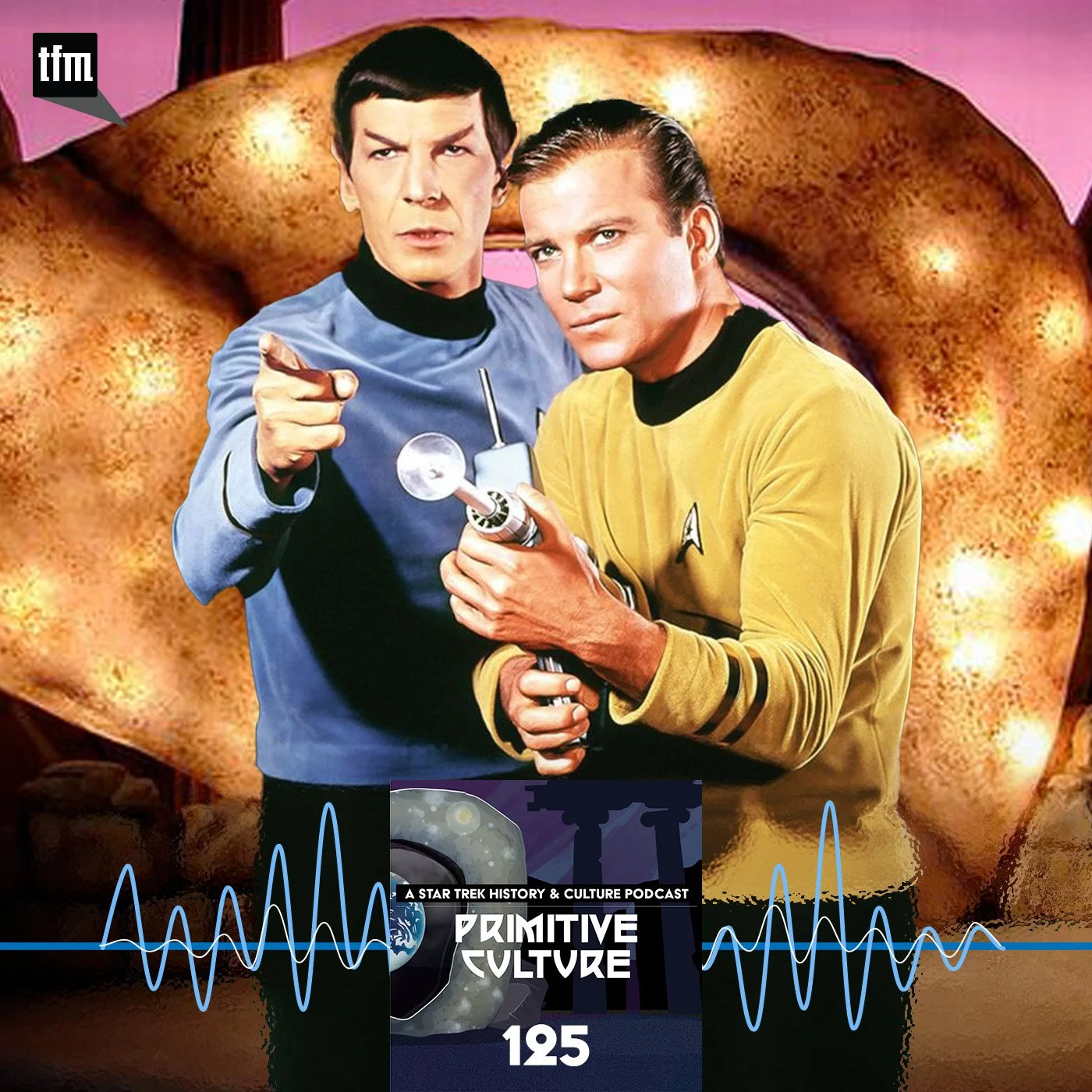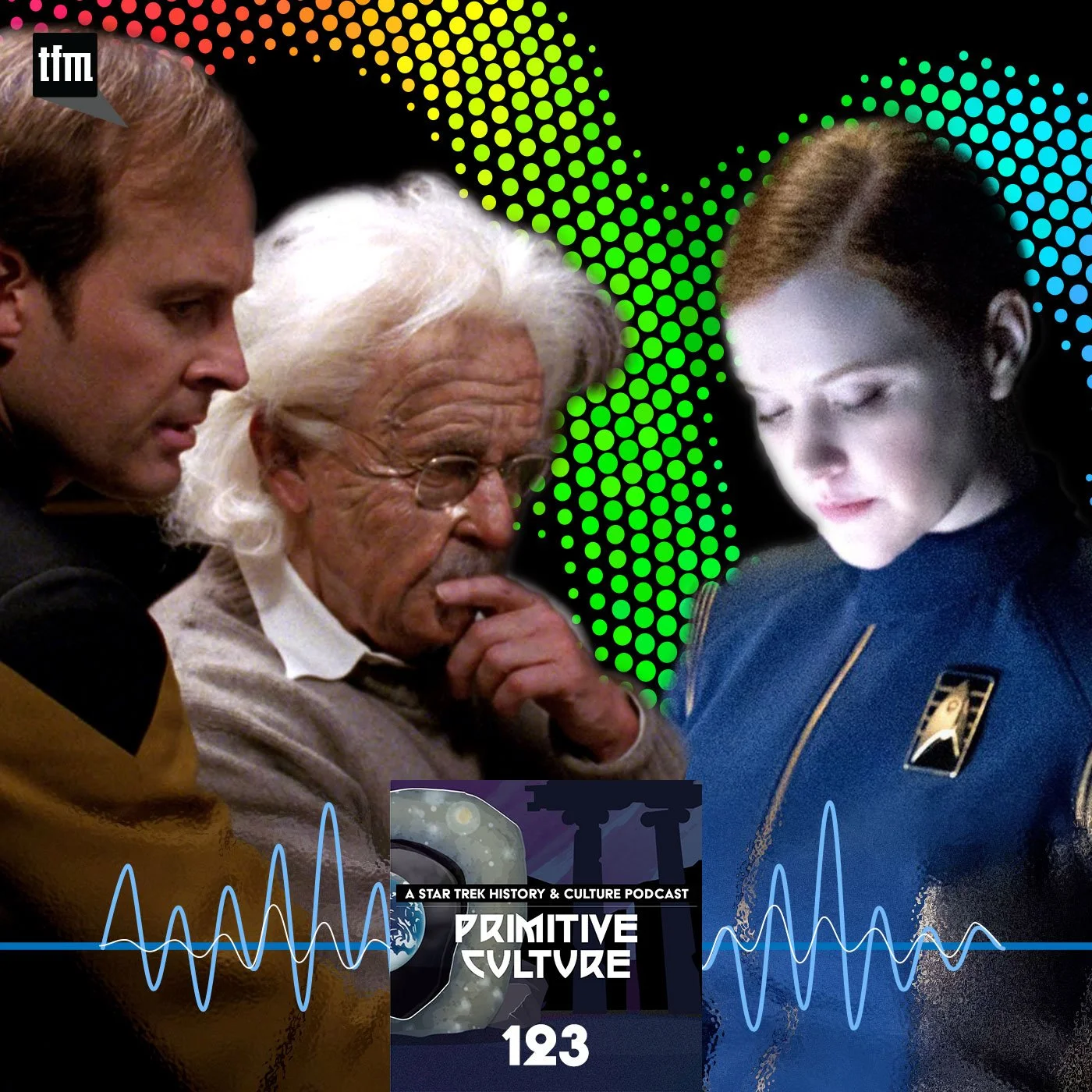Untimely Ends for Star Trek’s Redshirts.

Running Time: 1 hour 11 minutes 34 seconds
Download / RSS / Send us a message / Discuss the show / Support Trek.fm
Set phasers to stun, use thrusters only while in spacedock, and—whatever you do—avoid the narrative! The last of these—taken from John Scalzi’s parodic novel Redshirts—might apply equally to Starfleet’s young supernumeraries and the ensigns of the novel’s Starship Intrepid.
In this episode of Primitive Culture, hosts Duncan Barrett and Clara Cook look at how the redshirt trope has played out over the course of Star Trek’s half-century mission, using Scalzi’s novel as a counterpoint. We consider what it means to die a good death (on screen and in reality), why some lives are viewed as more valuable than others, and what our feelings about redshirts might tell us about the limits of human empathy.
Chapters
Intro (00:00:00)
Scalzi’s Novel (00:03:12)
Featured Extras and Meaningless Deaths (00:10:05)
In the Fridge (00:20:37)
Post-Mortem on Voyager (00:27:15)
Willing Suspension of Empathy (00:43:45)
Pain and Suffering (00:56:45)
Good Grief (01:03:05)
Hosts
Duncan Barrett and Clara Cook
Production
Tony Robinson and Clara Cook (Editors) Duncan Barrett (Producer) C Bryan Jones (Executive Producer) Matthew Rushing (Executive Producer) Ken Tripp (Executive Producer) Norman C. Lao (Associate Producer) Amy Nelson (Associate Producer) Tony Black (Associate Producer) Richard Marquez (Production Manager) Brandon-Shea Mutala (Patreon Manager)
Music in Star Trek. We take a look at how Trek’s underscore has developed over more than half a century with musicologists Jessica Getman and Evan Ware.
Half a Decade of Primitive Culture. In this special episode, recorded earlier this year, we look back on the podcast and how Star Trek has changed in the time we’ve been podcasting.
Cardassian war crimes and The Man in the Glass Booth. We look at the DS9 episode “Duet” alongside The Man in the Glass Booth, as well as the presentation of war crimes in Star Trek more generally.
Autistic representation in Star Trek. We look at Trek’s history of (accidental) representation of neurodiversity, considering characters such as Data, Seven of Nine, Reginald Barclay, and Sylvia Tilly.
Star Trek’s Double Troubles. We look doppelgängers and duplicates from The Original Series through Lower Decks.
Trans Representation in Star Trek. We look at how Star Trek accidentally addressed the topic in TNG and DS9.
The Alien franchise and Star Trek: Strange New Worlds. We take a look at “All Those Who Wander” alongside the Alien franchise.
How Star Trek’s leaders reflect our own. We talk about the parallels between Star Trek’s leaders and our own, and ask whether Star Trek has finally managed to marry the military ethos of Starfleet with the business of intergalactic politics.
Star Trek’s backdoor pilots. We take a look at the original attempt to establish a spinoff series, “Assignment: Earth,” as well as more recent examples including Strange New Worlds and more potential offspring of Discovery.
What if it wasn’t the Vulcans who made first contact? In honor of First Contact Day, we imagine how things might have played out for humanity had it been the Klingons, Romulans, or others passing by on April 5, 2063.










